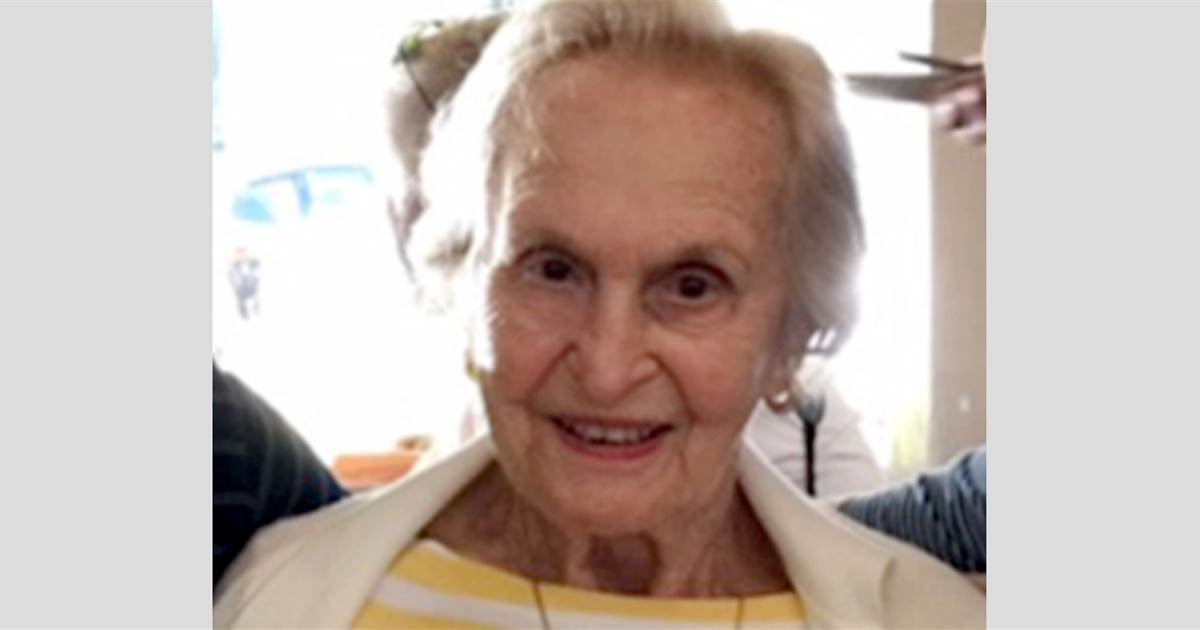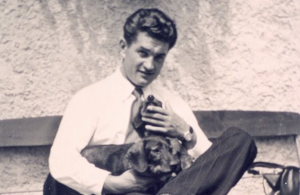The current situation may be unprecedented, but there is precedent for surviving the unthinkable.
When my grandmother was 18 years old, a short letter from her father saved her life. Scribbled hastily in swooping cursive, it read, “If you can, stay where you are.”
It was the last time she would ever hear from her beloved father. Shortly thereafter, Nazis rounded up the rest of her family from their village in rural Romania and sent them to Auschwitz. My grandmother was visiting her sister in Budapest and had a chance to survive on the run.

A village girl in a big city — and a Jew in a city occupied by Nazis — she did all she could to blend in. She removed the yellow Star of David from her clothes so she could illegally work in a champagne factory. She hid in bombed-out buildings, sleeping on cement floors in her frayed overcoat. Constantly hungry, she found ways to scrape together meals with whatever food she could find.
She was fortunate to be one of many Jews to obtain a protective passport from Swedish diplomat Raoul Wallenberg — known as World War II’s hero for saving 100,000 Jews — but a regime change soon rendered it worthless. She was eventually captured by the Nazis in 1944 and thrown into the Budapest Ghetto, from which she was liberated, along with thousands of others, in 1945. She learned 40 years later, as an American citizen living in the Bay Area, that it was Wallenberg who had successfully pleaded with Nazi guards to call off a planned massacre of the ghetto.
Recently, as COVID-19 has raged across our planet with no end in sight, I’ve relied on my grandmother for guidance. Like most people, I’m exhausted from spending weeks consumed by the virus’ impact. I’m worried about the economic implications, tired of being stuck at home, anxious about the future and scared that I or someone I love will get sick.
When I need a glimmer of hope, I call my grandma — one of the few people left who has firsthand experiences that meet the depth of our current circumstance. Because she’s been through darkness, she knows where to look to find light. The current situation may be unprecedented, but there is certainly precedent for surviving the unthinkable.
In Budapest, for instance, my grandma meticulously changed her locations and never told a soul where she planned on being next. Under no circumstance would she risk compromising her safety by breaking that fundamental rule. During a crisis, she has stressed with me during our calls, it is critical to be precise and disciplined. Act with caution. Listen to the experts. Don’t do anything to put yourself or others in jeopardy. She lived through a time when even the smallest decision — having a conversation, entering a building, sharing a location — could mean the difference between life and death. She believes we again find ourselves in such a time, so it is our responsibility to be ruthlessly focused on staying safe and keeping those around us safe.

As the war progressed, my grandma subsisted for weeks on stale bread and drops of mustard. Her only possessions, even in frigid winter months, were a thin cotton dress and a worn navy coat. Still, she never lost hope for a better future. Today, brave people are fighting for their lives against this virus. People’s mothers and fathers, friends and neighbors, coworkers and community members are dying. Small businesses are suffering and people’s paychecks are disappearing. These are tough and seemingly helpless times, and it’s impossible to ignore that. It is, however, possible to approach this unfortunate reality with an attitude of positivity as opposed to despair. Tough times don’t last, but tough people do.
Shortly before she was liberated, my grandma was reunited with her brother in the Budapest ghetto, and they slept together every night on a dirty old mattress; they knew that the only safe place was with each other. We again need family now more than ever, to fortify the spirit. We need to FaceTime with parents and grandparents, to call our siblings, to laugh with our kids — and hug them if possible. We need to band together with those closest to us as we navigate a long and challenging path forward. We are all we’ve got.
My grandma had friends survive the Holocaust who were tortured, beaten, starved and worse. She has seen that individual human beings can handle far more than most of us have ever had reason to know. Our strongest human instinct is to survive — so we are resilient and resourceful, especially when our lives are at stake. When we are pushed, when we are challenged, it is in our nature to respond. In desperate times, she says, people find strength in themselves that they didn’t know existed. This collective and innate strength of humankind is what will carry us through this pandemic.
Wallenberg, who saved thousands of Jews in Budapest, twice saved my grandma’s life without knowing her. During this crisis, it is our nurses, doctors and other health care workers who are risking their lives to save others. Extreme adversity can reveal humanity’s best qualities, my grandma says — selflessness, compassion, purpose, decency, love — and those qualities are on full display at hospitals around the world, not to mention at other essential businesses like pharmacies, grocery stores, post offices and distribution centers. We should express our thanks to all of these people protecting and caring for us, whether by applauding them in the evenings, donating supplies if able, or simply treating them now and in the future with the extreme respect and admiration they deserve.
My grandma will be 95 in June and still lives in the Bay Area. Before the pandemic, she played bridge five times a week, enjoyed a daily morning walk around her neighborhood and wore an elegant blouse as she dined with friends in her retirement community. Now, she is stuck in her apartment alone. Still, when I call her, her voice is vibrant. When we FaceTime — which she just recently learned how to do — her smile is wide. She respects the threat of the virus, she is doing all she can to avoid it and she genuinely thinks we have what it takes to get past this together.
Considering what she’s been through — considering what she knows — it’s hard not to believe her.




